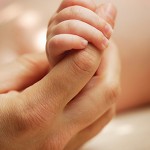University of Michigan doctor reveals the risks and to how to avoid them. Written by Maria White Many kids covet them, and most parents dread them. But like it or not, tattoos and body piercings are all the rage. "There's really nothing new about decorating the body," says David Rosen, MD, MPH, Teenage & Young Adult Medicine , U-M Health System. "What we have seen during the past 10 or even 20 years, though, is a marked increase in the number of people - particularly younger Americans - getting body modifying procedures such as tattoos and body piercings," he says. In fact, a recent survey of university undergraduate students revealed that more than one-half of those students had some type of body piercing and about 23 percent of the students had tattoos. But unlike other more typical forms of self-expression - makeup, clothing, hair style - body art can lead to complications that range from ...
Toxic Baby-Care Products: Truth or Fiction?

by Paula Begoun Many parents are concerned about the issue of phthalates (a group of chemical compounds used in plastics and as fragrance stabilizers) and their alleged health effects on children. The monthly journal Pediatrics published results of a study done in Seattle that analyzed urine samples from 163 infants for the presence of phthalate metabolites. The results indicated that many common baby-care products (lotions, shampoo, powder) may be to blame. The researchers found the presence of at least one phthalate metabolite in every urine sample, while 81% of the samples had measurable amounts of more than one phthalate. Infants exposed to multiple products tended to have the highest level of phthalate metabolites in their urine, suggesting that the products may be to blame. Since phthalates are used in many fragrances (and most baby products are heavily fragranced, often more so than skin-care products aimed at adults) it was natural to assume that this ...
